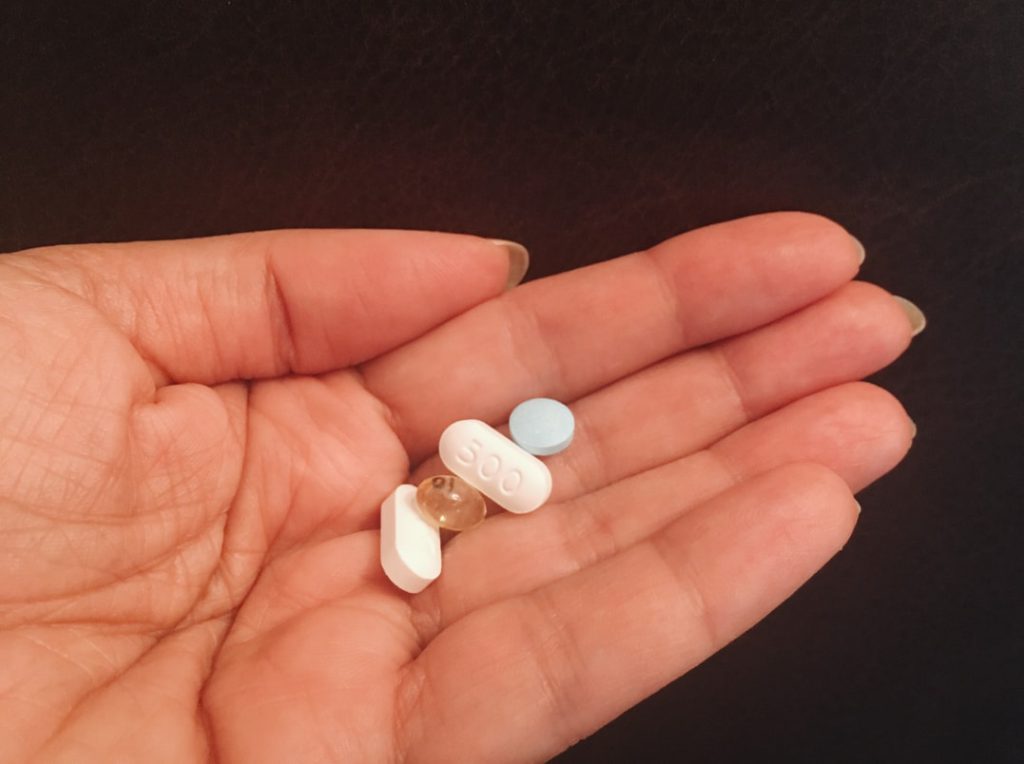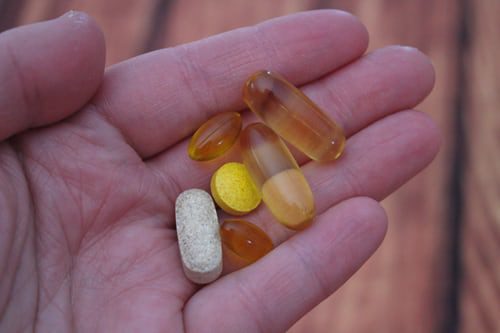
The Essentials On Vitamins
LAST UPDATED: November 10, 2022

The Essentials on Vitamins
One Size Doesn’t Fit All
8 hours sleep. Brush your teeth twice a day. Drink 2 litres of water. Eat 5 portions of fruit and veg. Floss….oh, I can’t remember how many times we need to do that. But you get the point. We all know we need to take care of ourselves. Our body is our temple and all that- the only one we’ve got. We’re constantly having that need reaffirmed. And with good reason. It’s not always easy to stay fit and healthy. Life has a habit of getting in the way!
But sometimes the essential truth can get lost in the noise of these ‘soundbite’ recommendations.
We all know vitamins are ‘good’, but some of their truths have got lost in the noise too. Not everyone needs the same vitamins nor in the same doses. And too much can do more harm than good.
This article here will clear up exactly what they do for our bodies, where we should be getting them in our diet and the risks of deficiencies when we don’t or can’t. That way, you can see for yourself how you can keep that temple of yours ship-shape!
What are Vitamins?
Vitamins are an essential part of a healthy diet. They help your body do its job. It’s jobs, in fact. Lots of them.
Regulating metabolism, growth, development, and tissue health, as well as preventing certain diseases and promoting good immune function.
Because our bodies can’t make most of them, we need to get them from our diets.
They come in two forms: water-soluble vitamins, which need to be replenished daily (because we can’t store them and excrete the one’s we don’t use) and fat-soluble vitamins, which can be stored in the liver for up to six months.
There are 13 essential vitamins that every person needs; here’s the low-down on what they are and where we get them…
Fat-Soluble Vitamins
-
Vitamin A
-Helps your body’s immune system and your vision (especially at night)
-Is found in many foods like: leafy green vegetables (like kale), orange vegetables (carrots, sweet potato and pumpkin) and eggs.
-Without Vitamin A, your eye’s can’t produce enough moisture to stay lubricated. In fact, Vitamin A deficiency is the leading cause of preventable blindness in children worldwide. Deficiencies in pregnant women can cause night-blindness. And a general deficiency harms the immune system and impairs its ability to fight off malaria, measles and diarrhoea.
-Too much, however, can lead to liver and bone damage and cause birth defects.
-
Vitamin D
-Needed to keep bones, teeth and muscles healthy
-The body creates Vitamin D from direct sunlight on the skin. Though obviously many of us don’t spend as much time in the sun as we need (or like!). Luckily it can be found in oily fish, eggs, fortified cereals, red meat and fat spreads.
-Too little Vitamin D can lead to bone deformities in children (like rickets) and osteomalacia in adults.
-Too much can cause an abnormally large calcium level resulting in nausea, constipation, abnormal heart rhythm and even kidney stones. However, it’s nearly impossible to get too much from sunlight and foods (unless you start chugging cod liver oil by the litre!)
-
Vitamin E
-Helps maintain healthy skin and eyes, as well as strengthening the immune system
-It’s found in plant oils (rapeseed, sunflower, soy, corn and olive), nuts, seeds and wheat germ.
-Luckily, most people get the Vitamin E they need from their diets.
-
Vitamin K
-Helps with your bodies blood clotting, i.e. helping wounds heal
-It’s found in green leafy vegetables (like broccoli and spinach), vegetable oils and cereal grains.
-Most people get what they need from a balanced diet here as well but too little can lead to excessive bleeding and easy bruising.
-Too much can be dangerous if you have issues with your liver or take any blood-thinning medication.
Water-Soluble Vitamins (need to be replenished daily)
-
Vitamin B1 (or Thiamin)
Helps the body break down and release energy from food and maintain a healthy nervous system.
-It’s found in peas, some fruit (like bananas and oranges), nuts and wholegrain bread.
-Too little Vitamin B1 can lead to fatigue, poor appetite, headaches, poor concentration and irritability.
-Too much can cause headaches and an upset stomach.
-
Vitamin B2 (or Riboflavin)
-Helps keep the skin, eyes and nervous system healthy, and the body release energy from food.
-Good sources are milk, eggs, plain yoghurt, mushrooms and fortified breakfast cereals.
-A poor diet usually goes hand-in-hand with a riboflavin deficiency. It can lead to skin lesions, light sensitivity and cracks around the corners of your mouth.
-Too much can have you rushing to the toilet (frequent urination or diarrhoea) and turn your pee an orangey colour.
-
Vitamin B3 (or Niacin)
-Also keeps the nervous system and skin healthy while helping release energy from your food.
-Meat, fish, wheat flour and eggs help you get your dose here.
-Too little can slow your metabolism, making you more susceptible to drops in temperature.
-High doses can cause skin flushes and- over a sustained period of time- even liver damage.
-
Vitamin B5 (or Pantothenic acid)
-Helps the body release energy from food
-You find it in almost all vegetables as well as wholegrain food and meats (in particular chicken, beef, liver, eggs, mushrooms and avocado)
-A healthy diet will almost certainly give you all you need as it’s found in such a wide selection of foodstuffs but alcoholics and other people with malnutritional diets could be at risk of deficiency, which will manifest itself in a host of the side-effects that we have discussed so far.
-
Vitamin B6 (or Pyridoxine)
-As well as helping the body store energy from proteins and carbohydrates, it helps the body form haemoglobin, the substance in red blood cells that transport oxygen around the body.
-It’s found in lots of foods: pork, chicken, some fish, peanuts, soya beans, oats, bananas, milk.
-Again, with it being found in so many foods, a healthy diet should ensure you have all you need. Deficiencies are uncommon but can cause weakened immunity and cracks around the corners of the mouth.
-Too much is more of a concern. More than 200mg a day can lead to peripheral neuropathy (loss of feeling in the arms and legs), and if this persists for even a few months, it can be permanent. So that’s one you do want to keep on top of!
-
Vitamin B7 (or Biotin)
-It’s only needed in small amounts to help the body make fatty acids.
-It’s found at very low levels in food, but it is also made naturally by the bacteria in your bowel.
-Deficiencies are unlikely, but symptoms include loss of appetite, lethargy, and skin problems.
Too much is unlikely and rare; the main danger here is cystic acne around the chin and jaw.
-
Vitamin B9 (or Folic acid)
-Any mothers will know about this one! As well as helping the body form red blood cells, it reduces the risk of birth defects- such as spina bifida- in unborn babies.
-Small amounts are found in lots of foods, like broccoli, Brussels sprouts, cabbage, spinach, peas, chickpeas and fortified breakfast cereals.
-Most people get what they need from a balanced diet, but pregnant women need to take 400mg supplements until their 12th week.
-Too much can cause stomach problems, trouble sleeping and skin reactions.
-
Vitamin B12
-Makes red blood cells, keeps the nervous system healthy and releases energy from food.
-You find it in meat, milk, fish, cheese, eggs and some fortified breakfast cereals.
-Most people diet should give them enough B12 but vegans, in particular, are susceptible to deficiencies (as it’s not found in fruit, vegetables and grains), as well people undergoing severe weight loss. Fatigue is the main symptom here.
-Too much is unlikely but can be a marker for an underlying illness or disease.
-
Vitamin C
-This is the one we all know a bit about! It helps protect cells and keep them healthy, maintaining healthy skin, blood vessels, bone and cartilage, and helps with healing wounds.
-Hands up who knows where this is found? Yep, orange juice (and other citrus fruits) are a great source. It can also be found in peppers, strawberries, blackcurrants, peppers, Brussels sprouts and potatoes!
-Too little Vitamin C can put you at risk of scurvy.
-Too much (more than 1000mg/day) can cause stomach pain, diarrhoea and flatulence. Luckily once your redress your balance, those symptoms will go away.
Healthy Diets Don’t Solve For It All
All the vitamins and minerals we need to get through our day can be found in a healthy diet. But, what if you’re not eating or living as well as you’d like? You and your personal circumstances (age, diet, work and lifestyle habits, genetic make-up) determine your particular vitamin needs.
As we get older, declining levels of stomach acid can affect our ability to absorb nutrients.
Lifestyle habits play a part: smokers often have low levels of Vitamin C; heavy drinkers, Vitamin B; and people who struggle with their weight often have issues with Vitamins C, D and B12.
Vegans and vegetarians often make their choice for health as well as ethical reasons, but as most of Vitamin B12 is found in animals foods, they often need supplementary help there.
And these are just a few examples.
Hopefully, this article has helped give you an appreciation for the vital role vitamins play in our lives and the understanding that, as well as the dangers of too little, you can have ‘too much of a good thing’.
Basically, your bodies requirements are as unique as you are!
Autumn DNA Blog – Nutrition, Nutrigenomics, and Biohacking (tryautumn.com)

